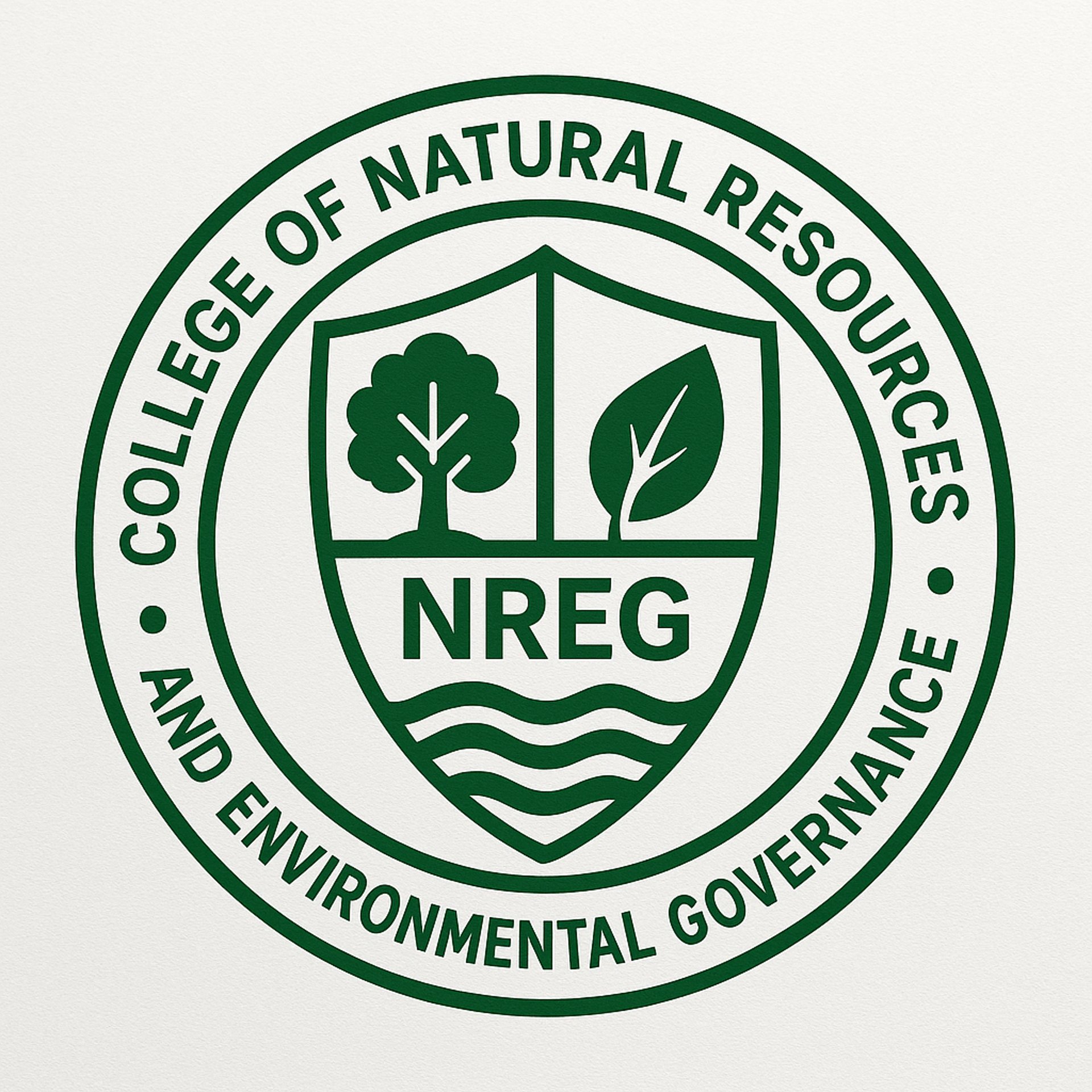
College of Natural Resources and Environmental Governance (NReg)
The College of Natural Resources and Environmental Governance is structured around specialized departments that combine expertise from diverse fields to advance teaching, research, and community engagement. Each department contributes uniquely to NReg’s mission of fostering sustainability and good governance.
1. Department of Natural Resource Management
This department focuses on the scientific, technical, and management aspects of renewable and non-renewable resources.
Areas of focus include forestry, water, land, biodiversity conservation, and ecosystem restoration. The department trains students to become stewards of natural assets—balancing conservation with economic and social needs.
Francisca Boaduwaa Jachie MPhil (Denmark)
Stephen Abdul Razak Adongo MPhil (Ghana)
S.T. Adjani BSc (KNUST) MPhil (Denmark)
F. Owusu Boamah BSc ( KNUST) PhD (Germarny)
Eric Owusu – Agroforestry and Ecovillage Design Education
Percy Kwabena – BSc (KNUST) PhD(USA)
M. Adjaloo Kodovi BSc (KNUST) MPhil (USA)
2. Department of Environmental Governance and Policy
Dedicated to the policy and institutional dimensions of environmental management, this department explores governance systems, environmental law, economics, and planning.
It develops leaders capable of designing and implementing policies that integrate ecological integrity, economic growth, and social equity.
Edward Jachie Awuah MPhil (Italy)
T.T. Koduah BSc (Natural Resources) PhD Forest Governance
Paul K. Tinkorang BSc (Agric), MSc (KNUST) Ksi
Dr. K. Asamoah BSc (Russia) MSc (Ghana) PhD (Canada)
3. Department of Climate Change and Sustainability Studies
This department advances understanding and solutions in climate science, adaptation strategies, and resilience-building.
Students and researchers engage in modelling, innovation, and policy development to address global climate challenges through local and regional lenses.
M. K. Agyei BSc (UST) MSc (London) PhD (Germany)
P. Agyenim-Boateng BSc (Agric) MSc (KNUST)
B. Fordjour BSc (Natural Resources, KNUST), MPhil (UK)
E. Daweh BSc (Agric) KNUST, MSc (Germany)
4. Department of Environmental Economics and Development Studies
Here, students learn to integrate economic principles with environmental and development realities, analysing trade-offs, cost-benefit approaches, and sustainable growth models.
The department equips policymakers and analysts to make data-driven decisions that ensure both prosperity and ecological balance.
B. Atta Bodua BSc (KNUST) MPhil Ghana
S. K. Boateng BSc/MSc (KNUST)
Dr. Adelaide Twumasi BSc (Agric UST, MSc/PhD (Canada)
Mr. P. Boakye BSc (UST) MSc (UK/Denmark)
Departments
Collaborative Centre's and Research Hubs
In addition to its core departments, NReg hosts research centres and partnerships focused on:
Natural resource governance and policy innovation.
Sustainable livelihoods and community resilience.
Environmental data analytics and systems modelling.
Climate adaptation and resilience strategy.
These centers link academia with practice—bridging knowledge, policy, and implementation to foster real-world change.
Jonas Appiah Boadu BSc (Agric) MSc (KNUST) PhD (Switzerland)
M.K. Bodua BSc/MSc (Ghana) PhD Russia
B. Bempah Frimpong BSc (Natural Resources, KNUST) PhD Environmental Science
